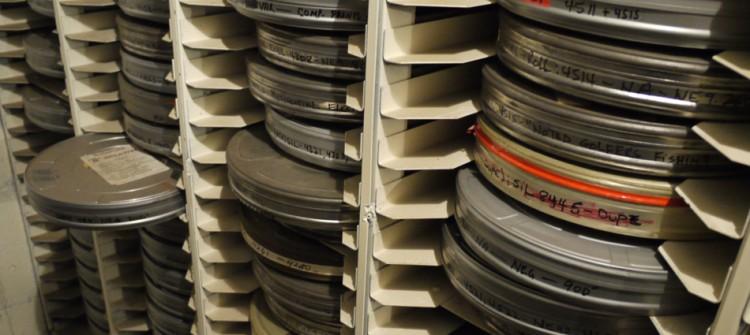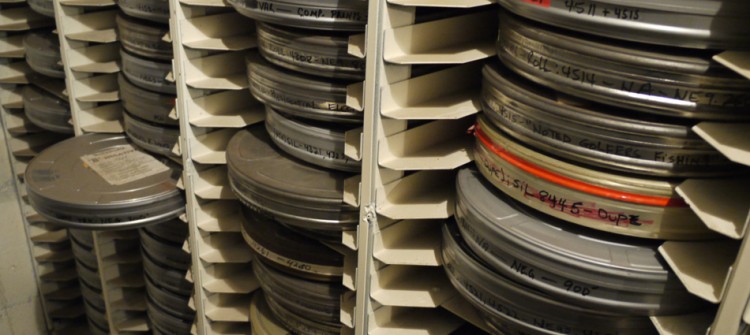Metal doors lead to rooms built to withstand explosions. A thermostat watches the temperature, as even a light bulb left on can set a room in flames. And when the time comes, a tightly closed canister is carefully taken from the racks that line the rooms, opened with care, and a film reel is gently removed and placed on an old camera. As it begins spinning, light shines through and an image of a world both lost and nearly forgotten is projected—scenes of living history that may very soon be reduced to dust and chemical waste.
Thousands of film vaults like this still exist around the world, yet nearly all of them are facing the same fate. Filmmakers have already abandoned them—whether for shooting movies or TV shows—and with the switch to digital, time is running out for the vaults and all the films inside. And as the films deteriorate, the history they contained will never be seen again.








